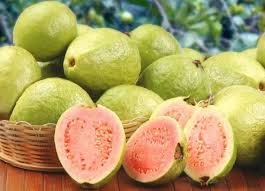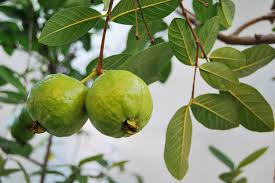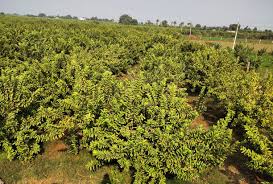![]()
If you’ve landed on this article page, you’re probably searching for a
good business idea—an idea that’s light on the pocket but heavy on
returns, promising both a fulfilling journey and potential profit.
|
How to start a Successful Guava Farming in Nigeria
Guava farming presents a very lucrative agribusiness opportunity
in Nigeria. As one of the most widely consumed fruits across
Nigeria, demand for fresh guavas along with processed guava
products continues to vastly outstrip domestic supply. With
guava production dominated by smallholder farms, the market
holds the potential for large-scale commercial guava orchards to
flourish, serving an unmet need.
Guava farming is a profitable agricultural venture in Nigeria
and Africa due to the high demand for guava fruit in local and
international markets. Guava is a highly nutritious and
delicious fruit that is gaining popularity in Nigeria and other
African countries due to its numerous health benefits. Nigeria
is one of the major guava producing countries in Africa, with an
annual production of about 620,000 metric tonnes, while the
global production is about 42.5 million metric tonnes annually.
Guava fruit is rich in nutrients such as vitamins A and C,
dietary fiber, and antioxidants, making it a popular choice for
health-conscious consumers. It is also widely used in the food
and beverage industry for making jams, jellies, juices, and
other products.
Guava farming has a lot of potential for exportation due to the
increasing demand for fresh guava and processed guava products
such as juices, jams, and canned guava. The global guava market
size was estimated at USD 3.3 billion in 2020 and is expected to
grow at a compound annual growth rate (CAGR) of 5.1% from 2021
to 2028. The top export destinations for guava fruits from
Nigeria are the United Kingdom, the United States, the
Netherlands, and Germany.
In Nigeria, guava farming is mainly done in the Southwest,
Southeast, and South-South regions due to the favorable climatic
conditions. However, the production level is still low compared
to the potential demand for guava in the country. With the
increasing awareness of the nutritional and health benefits of
guava, there is a growing demand for guava products in Nigeria
and Africa, creating an opportunity for investors and farmers to
tap into the market.
Planting Method:
Hole Preparation: Dig planting holes that are twice the size of
the root ball and fill them with a mixture of soil and compost.
Planting Depth: Ensure guava seedlings are planted at the same
depth as they were in the nursery.
Mulching: Apply organic mulch around the base of seedlings to
retain soil moisture and suppress weed growth.
Irrigation and Water Management:
Initial Watering: Water newly planted seedlings thoroughly to
help establish roots.
Drip Irrigation: Consider installing drip irrigation systems for
efficient water delivery and conservation.
Watering Frequency: Guava trees require regular watering,
especially during dry periods, to ensure optimal growth and
fruit development.
Nutrient Management
Guava trees have specific nutrient requirements for healthy
growth and fruit production. Proper nutrient management is
essential. Here’s what farmers should consider:
Soil Testing:
Importance of Soil Testing: Conduct soil tests to determine the
pH and nutrient levels in the soil.
Fertiliser Application: Based on soil test results, apply
balanced fertilisers containing nitrogen, phosphorus, and
potassium (NPK) as needed.
Organic Alternatives: Incorporate organic fertilizers such as
compost, poultry manure, or vermicompost for long-term soil
health.
Foliar Feeding:
Foliar Spray: Apply foliar sprays of micronutrients such as
zinc, manganese, and boron to address nutrient deficiencies.
Timing: Perform foliar feeding during periods of active growth
for better nutrient absorption.
Pest and disease management
Fruit Flies: Control fruit flies using traps, baits, or organic
insecticides.
Aphids and Whiteflies: Monitor for aphids and whiteflies, and
use neem oil or insecticidal soap for control.
Mealybugs: Prune affected branches and apply neem oil or
horticultural oil for mealybug control.
Guava farming in Nigeria offers a rewarding opportunity for
farmers to tap into the growing demand for this nutritious and
flavourful fruit. By following these top tips and best practices
for guava cultivation, Nigerian farmers can increase their
chances of a successful harvest and maximise their yields. Guava
farming is not without its challenges, but with proper planning,
management, and attention to detail, farmers can overcome
obstacles and thrive in this sector.
Get our Practical Training Guide on how to set up a successful Guava farm in Nigeria. In this Training guide you will get the top tips and strategies for successful guava farming in Nigeria. This in-depth guide covers everything an entrepreneur needs to launch a highly profitable guava farming enterprise in Nigeria. It provides practical insight into optimal guava varieties, farm setup recommendations, effective cultivation practices, harvest and post-harvest considerations, value-added processing options, marketing channels, and vital guava business management tips.
|







